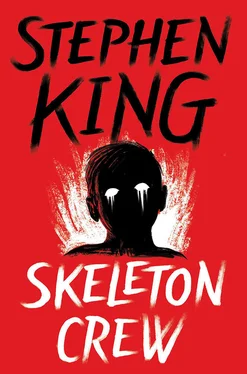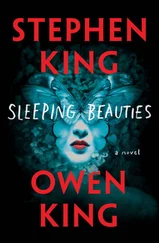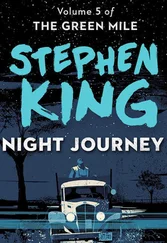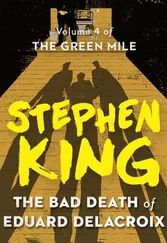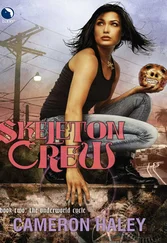Stephen King - Skeleton Crew
Здесь есть возможность читать онлайн «Stephen King - Skeleton Crew» весь текст электронной книги совершенно бесплатно (целиком полную версию без сокращений). В некоторых случаях можно слушать аудио, скачать через торрент в формате fb2 и присутствует краткое содержание. Город: New York, Год выпуска: 2016, ISBN: 2016, Издательство: Scribner, Жанр: Ужасы и Мистика, на английском языке. Описание произведения, (предисловие) а так же отзывы посетителей доступны на портале библиотеки ЛибКат.
- Название:Skeleton Crew
- Автор:
- Издательство:Scribner
- Жанр:
- Год:2016
- Город:New York
- ISBN:978-1-5011-4130-0
- Рейтинг книги:3 / 5. Голосов: 1
-
Избранное:Добавить в избранное
- Отзывы:
-
Ваша оценка:
- 60
- 1
- 2
- 3
- 4
- 5
Skeleton Crew: краткое содержание, описание и аннотация
Предлагаем к чтению аннотацию, описание, краткое содержание или предисловие (зависит от того, что написал сам автор книги «Skeleton Crew»). Если вы не нашли необходимую информацию о книге — напишите в комментариях, мы постараемся отыскать её.
Skeleton Crew — читать онлайн бесплатно полную книгу (весь текст) целиком
Ниже представлен текст книги, разбитый по страницам. Система сохранения места последней прочитанной страницы, позволяет с удобством читать онлайн бесплатно книгу «Skeleton Crew», без необходимости каждый раз заново искать на чём Вы остановились. Поставьте закладку, и сможете в любой момент перейти на страницу, на которой закончили чтение.
Интервал:
Закладка:
George undressed and lay down naked on his bed. He put his hands behind his head and looked up into the darkness. Slowly, slowly, a sunken and rather horrible grin surfaced on his face.
Things were going to be different around here from now on.
Very different.
Buddy, for instance. George could hardly wait until Buddy came home from the hospital and started in with the Spoon Torture of the Heathen Chinee or an Indian Rope Burn or something like that. George supposed he would have to let Buddy get away with it — at least in the daytime, when people could see — but when night came and they were alone in this room, in the dark, with the door closed…
George began to laugh soundlessly.
As Buddy always said, it was going to be a Classic.
The Ballad of the Flexible Bullet
The barbecue was over. It had been a good one; drinks, charcoaled T-bones, rare, a green salad and Meg’s special dressing. They had started at five. Now it was eight-thirty and almost dusk — the time when a big party is just starting to get rowdy. But they weren’t a big party. There were just the five of them: the agent and his wife, the celebrated young writer and his wife, and the magazine editor, who was in his early sixties and looked older. The editor stuck to Fresca. The agent had told the young writer before the editor arrived that there had once been a drinking problem there. It was gone now, and so was the editor’s wife… which was why they were five instead of six.
Instead of getting rowdy, an introspective mood fell over them as it started to get dark in the young writer’s backyard, which fronted the lake. The young writer’s first novel had been well reviewed and had sold a lot of copies. He was a lucky young man, and to his credit he knew it.
The conversation had turned with playful gruesomeness from the young writer’s early success to other writers who had made their marks early and had then committed suicide. Ross Lockridge was touched upon, and Tom Hagen. The agent’s wife mentioned Sylvia Plath and Anne Sexton, and the young writer said that he didn’t think Plath qualified as a successful writer. She had not committed suicide because of success, he said; she had gained success because she had committed suicide. The agent smiled.
“Please, couldn’t we talk about something else?” the young writer’s wife asked, a little nervously.
Ignoring her, the agent said, “And madness. There have been those who have gone mad because of success.” The agent had the mild but nonetheless rolling tones of an actor offstage.
The writer’s wife was about to protest again — she knew that her husband not only liked to talk about these things so he could joke about them, and he wanted to joke about them because he thought about them too much — when the magazine editor spoke up. What he said was so odd she forgot to protest.
“Madness is a flexible bullet.”
The agent’s wife looked startled. The young writer leaned forward quizzically. He said, “That sounds familiar — ”
“Sure,” the editor said. “That phrase, the image, ‘flexible bullet,’ is Marianne Moore’s. She used it to describe some car or other. I’ve always thought it described the condition of madness very well. Madness is a kind of mental suicide. Don’t the doctors say now that the only way to truly measure death is by the death of the mind? Madness is a kind of flexible bullet to the brain.”
The young writer’s wife hopped up. “Anybody want another drink?” She had no takers.
“Well, I do, if we’re going to talk about this,” she said, and went off to make herself one.
The editor said: “I had a story submitted to me once, when I was working over at Logan’s. Of course it’s gone the way of Collier’s and The Saturday Evening Post now, but we outlasted both of them.” He said this with a trace of pride. “We published thirty-six short stories a year, or more, and every year four or five of them would be in somebody’s collection of the year’s best. And people read them. Anyway, the name of this story was ‘The Ballad of the Flexible Bullet,’ and it was written by a man named Reg Thorpe. A young man about this young man’s age, and about as successful.”
“He wrote Underworld Figures, didn’t he?” the agent’s wife asked.
“Yes. Amazing track record for a first novel. Great reviews, lovely sales in hardcover and paperback, Literary Guild, everything. Even the movie was pretty good, although not as good as the book. Nowhere near.”
“I loved that book,” the author’s wife said, lured back into the conversation against her better judgment. She had the surprised, pleased look of someone who has just recalled something which has been out of mind for too long. “Has he written anything since then? I read Underworld Figures back in college and that was… well, too long ago to think about.”
“You haven’t aged a day since then,” the agent’s wife said warmly, although privately she thought the young writer’s wife was wearing a too-small halter and a too-tight pair of shorts.
“No, he hasn’t written anything since then,” the editor said. “Except for this one short story I was telling you about. He killed himself. Went crazy and killed himself.”
“Oh,” the young writer’s wife said limply. Back to that.
“Was the short story published?” the young writer asked.
“No, but not because the author went crazy and killed himself. It never got into print because the editor went crazy and almost killed himself.”
The agent suddenly got up to freshen his own drink, which hardly need freshening. He knew that the editor had had a nervous breakdown in the summer of 1969, not long before Logan’s had drowned in a sea of red ink.
“I was the editor,” the editor informed the rest of them. “In a sense we went crazy together, Reg Thorpe and I, even though I was in New York, he was out in Omaha, and we never even met. His book had been out about six months and he had moved out there ‘to get his head together,’ as the phrase was then. And I happen to know this side of the story because I see his wife occasionally when she’s in New York. She paints, and quite well. She’s a lucky girl. He almost took her with him.”
The agent came back and sat down. “I’m starting to remember some of this now,” he said. “It wasn’t just his wife, was it? He shot a couple of other people, one of them a kid.”
“That’s right,” the editor said. “It was the kid that finally set him off.”
“The kid set him off?” the agent’s wife asked. “What do you mean?”
But the editor’s face said he would not be drawn; he would talk, but not be questioned.
“I know my side of the story because I lived it,” the magazine editor said. “I’m lucky, too. Damned lucky. It’s an interesting thing about those who try to kill themselves by pointing a gun at their heads and pulling the trigger. You’d think it would be the foolproof method, better than pills or slashing the wrists, but it isn’t. When you shoot yourself in the head, you just can’t tell what’s going to happen. The slug may ricochet off the skull and kill someone else. It may follow the skull’s curve all the way around and come out on the other side. It may lodge in the brain and blind you and leave you alive. One man may shoot himself in the forehead with a.38 and wake up in the hospital. Another may shoot himself in the forehead with a.22 and wake up in hell… if there is such a place. I tend to believe it’s here on earth, possibly in New Jersey.”
The writer’s wife laughed rather shrilly.
“The only foolproof suicide method is to step off a very high building, and that’s a way out that only the extraordinarily dedicated ever take. So damned messy, isn’t it?
Читать дальшеИнтервал:
Закладка:
Похожие книги на «Skeleton Crew»
Представляем Вашему вниманию похожие книги на «Skeleton Crew» списком для выбора. Мы отобрали схожую по названию и смыслу литературу в надежде предоставить читателям больше вариантов отыскать новые, интересные, ещё непрочитанные произведения.
Обсуждение, отзывы о книге «Skeleton Crew» и просто собственные мнения читателей. Оставьте ваши комментарии, напишите, что Вы думаете о произведении, его смысле или главных героях. Укажите что конкретно понравилось, а что нет, и почему Вы так считаете.
